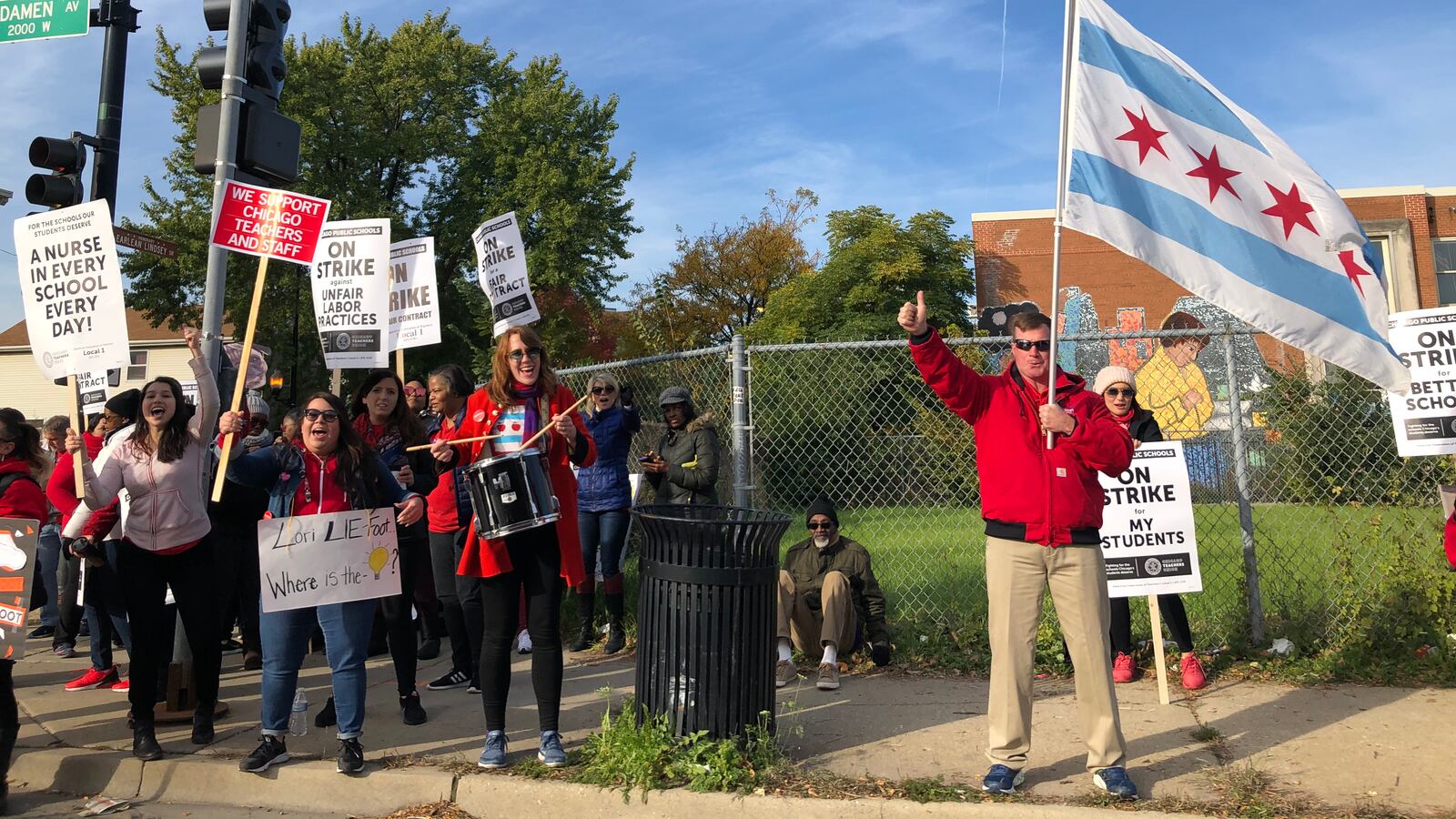Chicago educators and most support staff have not received the retroactive pay and full raises they agreed upon after a bitter 11-day strike that ended Oct. 31, causing a fresh round of agitation from some rank-and-file members just before winter break.
Also unresolved, three days before winter break, is the issue of veteran teacher pay and how the district plans to parcel out $5 million in additional annual pay raises to teachers with 14 years of experience or more, as agreed to in the contract.
“We have repeatedly asked for meetings to hash out final resolution,” said a union spokesman, Eric Ruder. He said a meeting with district officials was scheduled for later this week, before schools close for a winter break.
Teachers represented by the Chicago Teachers Union are unlikely to see increases in their Friday paychecks.
The district said that implementing the pay changes for tens of thousands of teachers requires complicated changes to its data systems, and expected to have a timeline for implementing the raises before the new year. The district “is working diligently to build and test new salary tables in our data systems to ensure accuracy,” said Emily Bolton, a Chicago Public Schools spokeswoman.
The school board approved the contract on Nov. 20.
Members of Service Employees International Union Local 73, which represents support staff such as bus aides and special education classroom assistants who also went on strike this fall, will see retroactive pay raises of 3%, going back a calendar year, in their Friday paychecks, Bolton said. However, while the SEIU’s new contract is retroactive to July 1, 2018, raises for its members only apply to the previous calendar year and not the current school year, and district still owes the workers another 3% from July 2019 on, said Science Meles, executive Vice President of SEIU Local 73.
Bus aides — who are among the lowest paid school workers in the system, with an average annual salary of $15,600 before the strike — already received in November an additional $250 bonus they were promised in the deal.
That union expected delays, particularly around some changes in pay structure involving special education classroom assistants, but leadership expected resolution by now, Meles said. The holiday season, and missed paychecks due to the strike days, mean frustrations are running high, she added. “We’re pissed.”
Roxana Gonzalez, an eighth-grade teacher at Dr. Jorge Prieto Math and Science Academy in Belmont-Cragin, said the issue has taken on urgency among educators in her building. They already took unpaid days off during the strike, so several had counted on the raises and retroactive pay increases dating back to September to help soften that blow.
“People are counting on this money to make Christmas happen for their families,” she said. “On Friday, it will be the 50th calendar day since we came back from strike. It feels like it should have been a priority for the district to make that happen.”
CTU President Jesse Sharkey raised the issue of pay delays last week in front of Chicago’s Board of Education. While the union was satisfied with its new contract, he was dismayed to see there were difficulties in implementation on pay raises and asked the board to “look into what is holding up … getting those contract provisions implemented,” Sharkey said.

